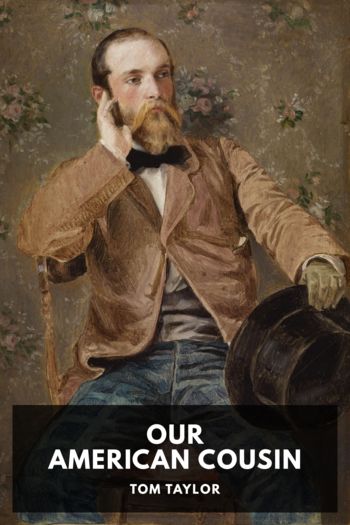Daughters of the Summer Storm by Frances Statham (best sci fi novels of all time .TXT) 📗

- Author: Frances Statham
Book online «Daughters of the Summer Storm by Frances Statham (best sci fi novels of all time .TXT) 📗». Author Frances Statham
She reached out to the double doors and pressed the handle. Slowly the door opened with a faint squeak, as if it had been closed for a long time. Inside, it was dark. No candle burned near the altar. And judging from the dust, no prayers had been said in the chapel for a long time.
The chapel contained ghosts from the past, rising up to haunt her. Ruis—with his terrible anger—glaring at her with the cross at her breast. The condessa—ill with her heart malady—
"Forgive her," Maranta prayed, kneeling in front of the unlit altar and oblivious to the dust and stuffiness of the chapel.
For so long she had carried the burden of the vision engraved on her mind—the old condessa with the sweet cakes in her unsteady hand, offering them to Innocencia—the poisoned cakes that had removed danger from Maranta and her unborn son.
The condessa had not known that Maranta was standing at the other door. No one else had seen the woman, she felt sure, for Dona Louisa had used the secret carved panel to slip from the nursery back to her room. And it was only later, when Innocencia was dead, that the condessa's actions took on a special significance.
Maranta vowed she would never tell anyone about the condessa, no matter what happened. She would save Ruis from the pain of learning his own mother had murdered his mad wife so that his son would be safe from harm.
Paulo. How she missed him. Maranta now felt impatience for Ruis to complete his business, and for the Intrudo to be done with, so they could all return to the fazenda.
Her clothes did not reveal that she was in mourning. Dom Ruis dismissed Maranta's objections to the beautiful, frivolous Parisian fashions he had ordered in the deep, rich hues that so enhanced her coloring.
"Mãe knows that you grieve in your heart for her, Maranta," he said in a gruff voice. "It is not necessary to proclaim it to others in the drabness of your clothes." Yet, both he and Dona Isobel were clothed in black.
They started out in the family carriage that had once brought Maranta from Santos over the Serra do Mar to this city of São Paulo. It was early evening and the Intrudo had begun.
Avoiding the crowds that had started to gather in the streets, the driver controlled the nervous horses and headed for the casa of friends, where they were to spend the evening.
Maranta felt self-conscious in the new slate-blue silk dress, with the gigantic gigot sleeves falling from the shoulders to the narrowed wrists. Her shoulders were bare and revealed far more expanse of creamy skin than she liked. But Dona Isobel had approved earlier when she was getting dressed.
"You are a married woman, Maranta," she had said, "and you are now allowed to wear dresses that would not be considered appropriate for a senhorita."
In the carriage, Dona Isobel glanced at Maranta with pride and said, "Maranta looks quite lovely tonight. Do you not think so, Ruis?"
He looked at Maranta and then at the older woman. "I think you are both very elegant tonight, Isobel."
Dona Isobel, smiling at the compliment, patted the black lace of her own new dress and settled back in the carriage.
If anyone were truly elegant, it was Dom Ruis, Maranta thought. Seated beside him, she was very much aware of his aristocratic bearing and the fine cut of his black evening clothes.
Reaching their destination, Maranta was nervous at first. But the extreme kindness of the Almeidas helped her to relax. The affair was a small, intimate gathering—much like one within her own family circle in Charleston—with the family priest, the favorite uncle, and the daughters of the house. If one of them lapsed into Portuguese for too long a time, the host would respond in English in deference to Maranta. Yet, she was able to follow the conversation more easily than she had imagined.
Seated across from Ruis, Maranta looked up to see his amused glance as she was served the first course. Ruis leaned forward and whispered, "Be careful of the soup, Maranta. It's very hot."
Maranta glanced at Ruis and back down at the steaming soup plate. When all were served, she lifted the round spoon and took a careful sip. But the second the mixture reached her throat, Maranta realized she had misinterpreted Ruis's warning.
She gasped for air and reached for the goblet of water before her to drown the burning in her throat. Everyone at the table was amused.
"Did I not warn you, pequena," Ruis said, "of our famous Intrudo soup?"
"I didn't understand," she apologized, taking another swallow of water, "that you meant 'hot' with peppers and spices."
"My apologies, senhora," the host said. "We tend to forget how startling it must be to one not accustomed to our ways."
"I'll remember next time," Maranta said, managing a smile.
Soon it was time to leave, and the three climbed into the waiting carriage to return to the Monteiro casa. The streets were crowded and noisy. Rough horseplay had begun, with people throwing flour on each other, disguising everyone's clothes and faces.
In fascination, Maranta leaned toward the window of the carriage to watch.
"You will soon find your face plastered with the stuff, Maranta, if you are not careful. I am not sure it will complement the rest of your attire," Ruis said.
The carriage was jostled by the surging crowd, and Maranta lost her balance. Ruis reached out to steady her, while his low voice growled an angry epithet. The carriage was surrounded by the unruly crowd, and with a violent shudder, the vehicle suddenly crashed to one side.
"Maranta, are you all right?" Ruis called to the stunned young woman who had been slammed to the side of the carriage.
"I. . . think so," she said.
"And you, Isobel?"
"Yes."
Ruis managed to get the door open, and he pulled both women from the wrecked carriage. The horses, frightened by the crowd, were acting up, rearing and snorting. As Ruis went





Comments (0)